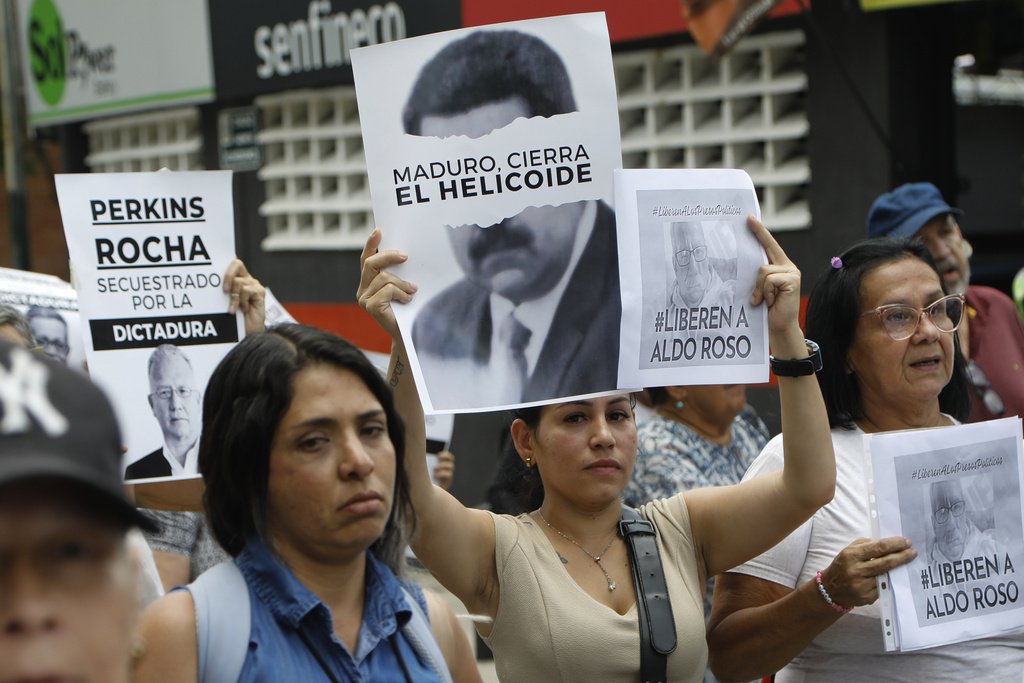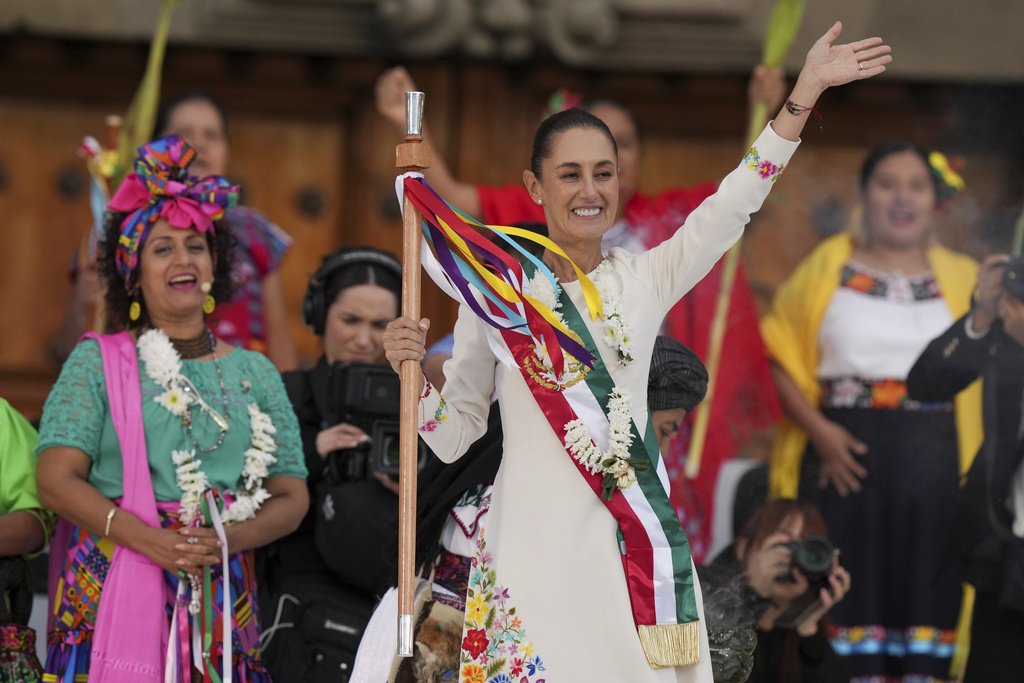Latin America
The Latin America Section of IR Insider publishes breaking news reports and analysis from Mexico, Chile, Brazil, and other Central American, South American, and Caribbean nations. Topics covered in the Latin America Section may range from Mexican-US Relations to the Economic Crisis in Venezuela and beyond. Our section editor is Sophia Moore.
The 158-page report done by the UN’s Independent International Fact-Finding Mission on the Bolivarian Republic of Venezuela revealed a pattern of coordinated human rights violations committed by Venezuelan security forces, government officials, and colectivos - armed, parapolice-like civilian groups loyal to Maduro.
On Wednesday, hundreds of Indigenous people covered in body paint and holding animal images marched in Brazil's capital against the ‘Marco Temporal’ Doctrine.
The Panama Canal, a critical waterway for global trade, is experiencing a severe drought due to the El Nino phenomenon, costing Panama millions of dollars. This drought has led to a significant drop in water in the Gatun Lake; the water source that powers the canal lock system and a water source for residents in Panama City and Colon.
On Sunday, October 20th, Moldova held a referendum vote on joining the European Union (EU), alongside its planned presidential elections.
The inauguration of North America’s first female head of state, Claudia Sheinbaum occurred this past Tuesday, Oct. 4 in Mexico City
Wildfires in the Amazon are rapidly increasing as a result of climate change and illegal deforestation. Wildfire season in the Amazon used to span three months, from August to October; however, climate change, deforestation, and increased use of land for farming has dramatically increased the season to six months, leading to greater destruction of flora and fauna.
Haiti is currently under a state of emergency as a result of its rampant gang violence—thousands are internally displaced, and millions are facing malnutrition. The violence is exacerbated by the damage of hurricanes and floods that have left millions without homes, causing a dramatic drop in GDP. Gang violence has seeped into all areas of the country, but most notably, the capital of Port-au-Prince. Despite its proximity to the United States, many Americans remain unaware of the humanitarian crisis in Haiti.
Over the weekend 10 more people were reported killed as a result of cartel violence in the Mexican state of Sinaloa. This brings the death toll to over 50, with another 50 missing in the capital city of Culiacan.
Thousands of Bolivians gather on the streets in support of former President Evo Morales, partaking in a 118 mile “March to Save Bolivia” from the village of Caracollo to the political capital of La Paz.
On April 25, Haiti’s transitional council officially took over, signaling the formalization of former Prime Minister Ariel Henry’s resignation. The transitional government is set to govern until the next presidential election, expected by February 7, 2026.
The United States must consider its next steps, as the temporary license to ease restrictions on Venezuela’s oil sanction is set to expire on Thursday. The agreement's condition, which provides necessary breathing room for Venezuela's oil and gas sectors, would depend on President Nicolas Maduro making democratic progress by the upcoming election date of July 28.
In the lead-up to Mexico's largest election, a wave of violence against political candidates has cast a shadow over the country's democratic process. The targeting of candidates by organized crime groups seeking to influence the outcome of elections has raised serious concerns about the integrity of the electoral process and the safety of those participating in it.
In an interview on Dec. 6th with the IR Insider, Jorge G. Castañeda, former Secretary of Foreign Affairs for Mexico and Professor of Latin American and Caribbean Studies at New York University, shared his insights on the different positions of Latin American countries on the Israel-Hamas War.
The longstanding territorial dispute between Venezuela and Guyana has escalated in recent weeks, drawing international attention and raising concerns over the potential for a broader conflict. At the heart of the matter is the oil-rich Esequibo region, spanning over 160,000 square kilometers, where significant oil and gas reserves have been discovered.
On Nov. 22, Nelson Piñero, a prominent Venezuelan activist and a member of the opposition party Encuentro Ciudadano, was arrested within the confines of his own home. The charges levied against Piñero were centered around accusations of incitement of hatred.
Chuck Schumer announced that the vote on Biden’s request for billions in Ukraine and Israel assistance would occur as soon as the week of Dec. 4. The vote combines the highly divisive issue of immigration policy with the less-partisan issue of funding for Ukraine and Israel.
Doctor Rolando Fonseca, director of the Facultad Latinoamericana de Ciencias Sociales Honduras (FLASCO) recently published a paper on immigration trends in Honduras that suggested that the country will not have enough young people to replace the older generations by 2035.
Amidst the ongoing protests against a controversial mining contract gripping Panama, demonstrators oppose the deal and advocate for alternative development paths. They beg the government to prioritize more sustainable industries such as agriculture, fishing, and tourism, rather than investing in resource-intensive mining operations.
On Nov. 7, a report from the U.S. Department of State (DOS) announced the discovery of a significant Russian disinformation apparatus operating in Latin America. The disinformation campaign is allegedly being conducted by The Social Design Agency (SDA), an informational entity that the European Union called “a Russian IT company closely linked to Russian political power.”
On Nov. 6, 2023, Ana Cecilia Gervasi, Peru's Foreign Minister, resigned from her position after controversy about her lack of diligence. Apparently, Gervasi failed to secure a formal meeting with President Joe Biden during Peruvian President Dina Boularte's recent visit to the United States.
On Thursday, Nov. 2, a simple majority of member states in the United Nations voted to end the embargo on Cuba.
On Oct. 26, incumbent Salvadoran president Nayib Bukele announced his controversial candidacy for next year's upcoming presidential election.
On Oct. 15, Daniel Noboa emerged victorious in the 2023 Ecuadorian general election. At the age of 35, he is the youngest president in Ecuadorian history and the youngest leader in Latin America.
On Oct. 22, various Latin American leaders gathered in Palenque, Mexico, to discuss potential solutions for the ongoing regional migrant crisis.
On Wednesday, Oct. 18, the Biden administration announced the softening of its sanction on oil, gas, and gold exports from Venezuela. The deal came one day after Venezuela’s incumbent leadership met with its opposition and agreed to hold democratic presidential elections in 2024.
On Sept. 6, Mexico’s Supreme Court decided to decriminalize abortion nationwide. The nation is now the most populous one in Latin America to provide legal access to corresponding medicines and procedures.
On Oct. 6, Costa Rica announced it would revoke its visa exemption for Honduran nationals. This policy shift incited a mixture of surprise and anger among Honduran officials and the public, and could potentially strain diplomatic relations in the region.
Brazilian Federal police raided ex-President Jair Bolsonaro’s home as part of a probe on his vaccination records.
Chile, a major lithium producer, has recently announced plans to nationalize its lithium industry.
The Cuban National Assembly ratified President Miguel Díaz-Canel’s second five-year term in office.






























